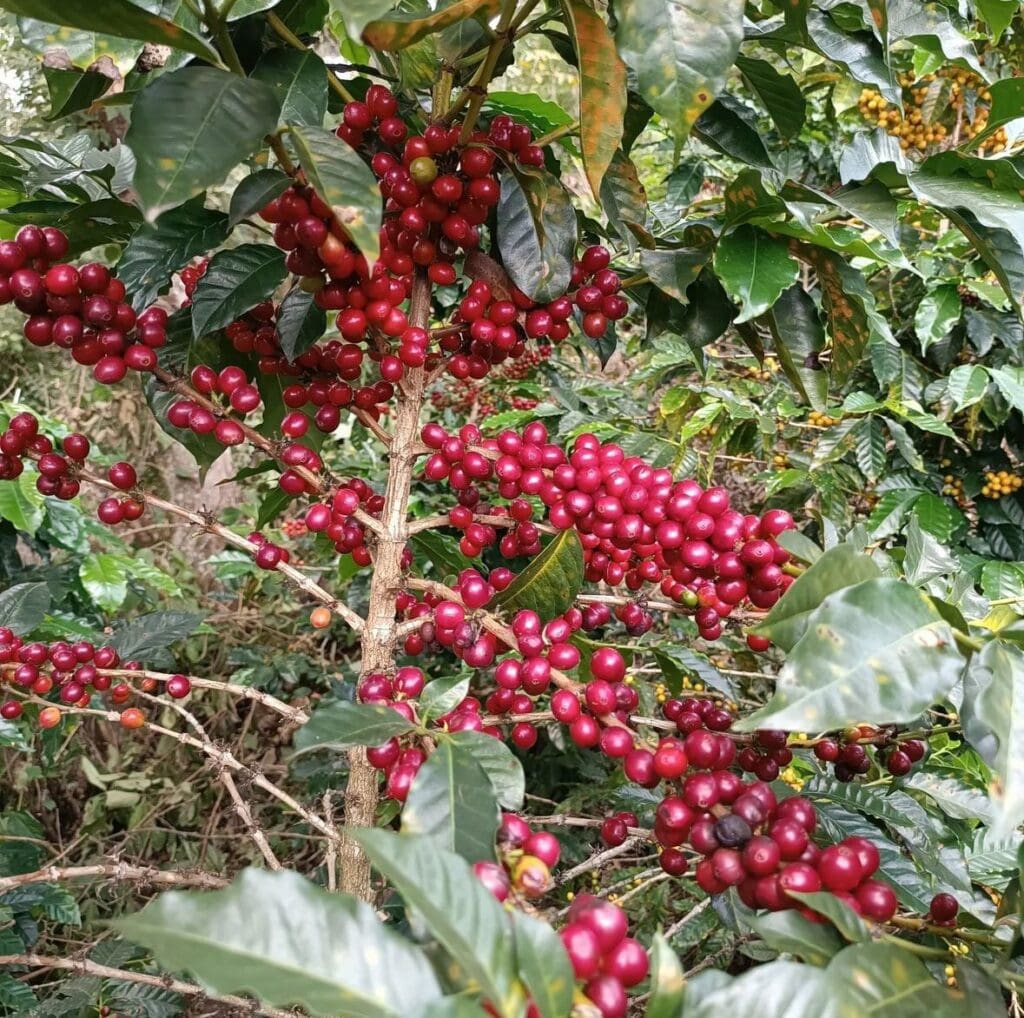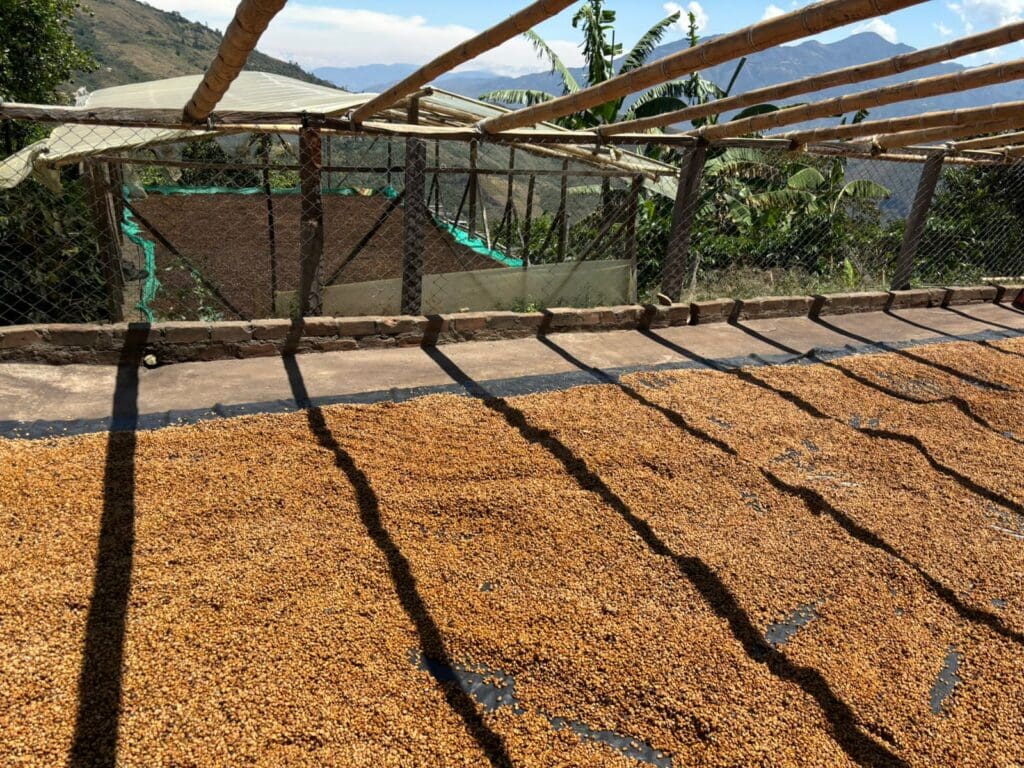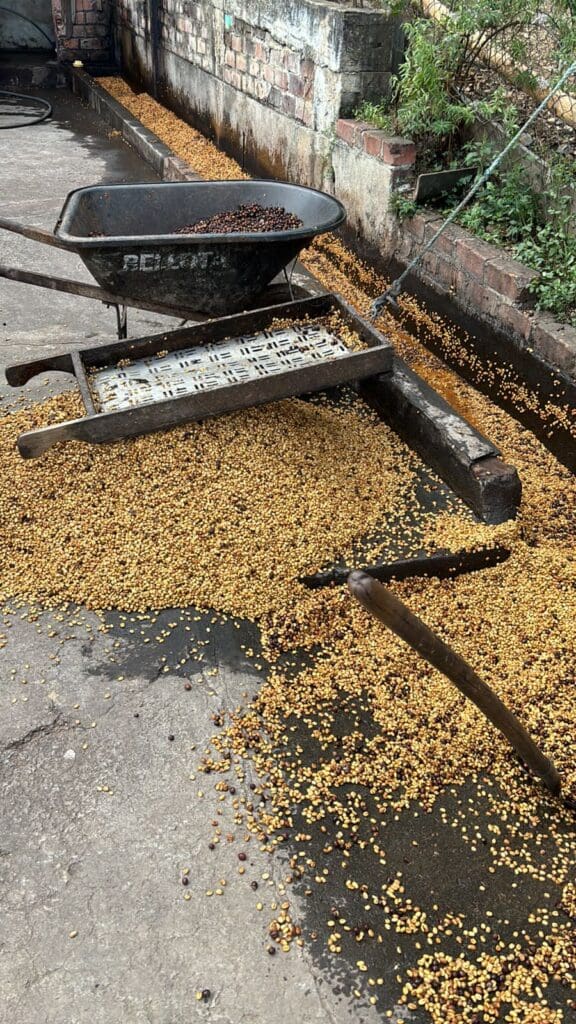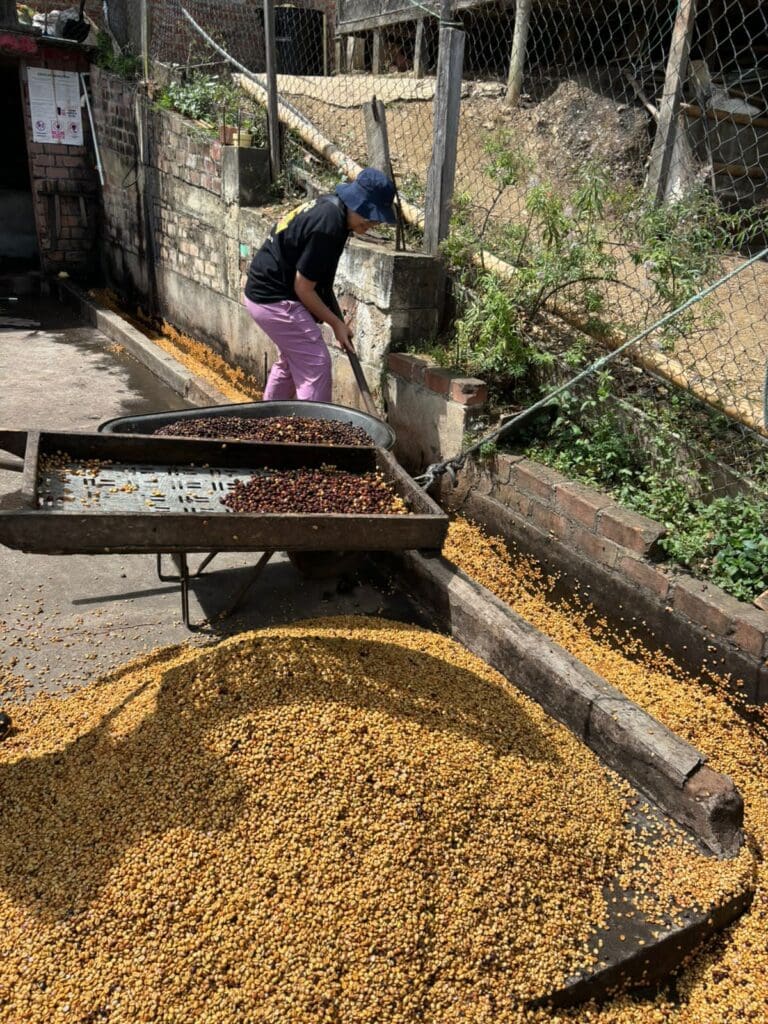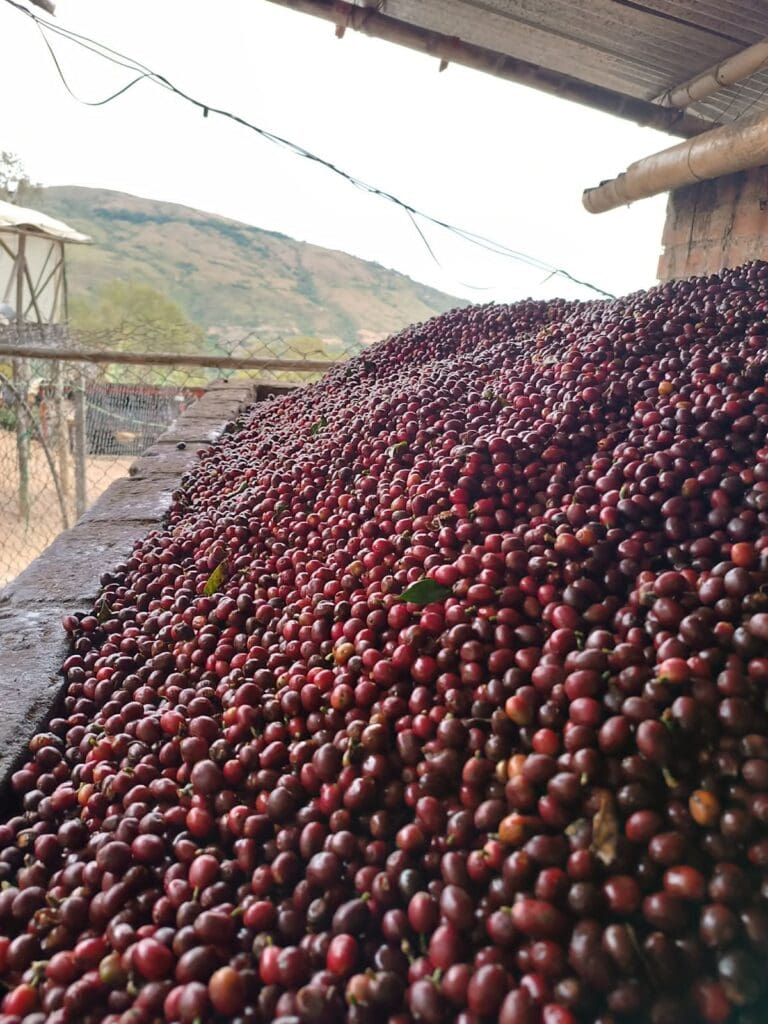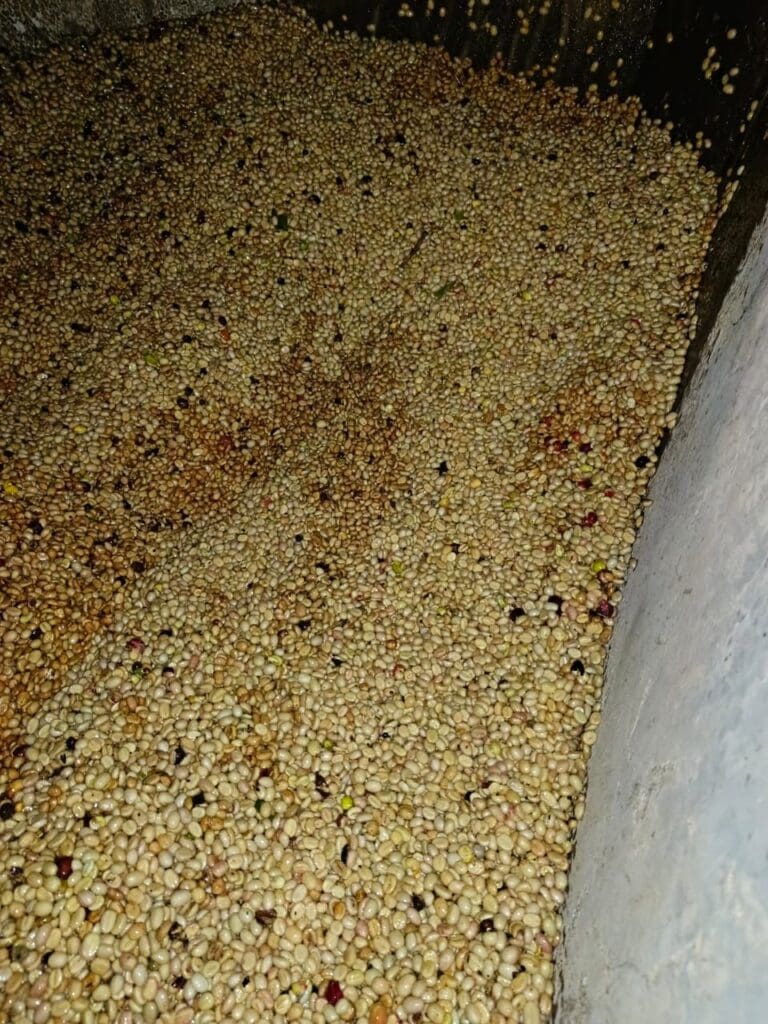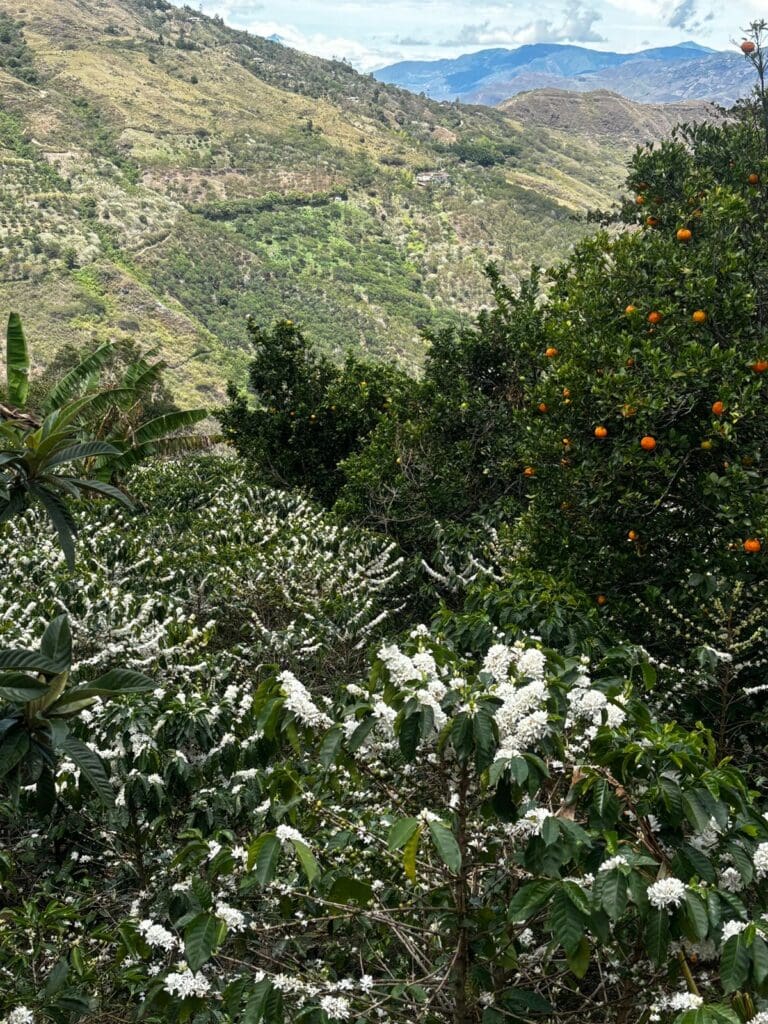Wilder Santacruz, a dedicated coffee producer from El Tablón de Gómez, is the proud owner of Villa Sol, a farm rooted in both tradition and innovation. From an early age, Wilder worked the land alongside his parents, an experience that inspired him to pursue his own path in coffee cultivation. As the second generation of coffee growers in his family, he set out to create a differentiated business model that combines sustainable practices, innovative processing techniques, and the cultivation of specialty coffee varieties.
Villa Sol, located in the mountainous municipality of Buesaco, Nariño, sits 1,950 meters above sea level on five hectares of land, 85% of which is dedicated to coffee production. The farm benefits from the region’s volcanic soils, steady sunlight, and cool air currents that rise through its dramatic canyons, creating an ideal microclimate for coffee cultivation. Founded in 2019, Villa Sol initially focused on traditional varieties like Caturra and Castillo but has since expanded its offerings. In 2022, Wilder introduced Geisha, followed by Pink Bourbon in 2023, showcasing his commitment to exploring new varieties that enhance quality and profitability.
Producing 9,000 kilograms of dry parchment coffee annually, Villa Sol integrates agroforestry systems to promote sustainability. These systems not only serve as wind barriers but also conserve soil, protect against climate change, and safeguard water sources. Wilder employs organic fertilizers, minimizes fungicide use, and prioritizes reforestation efforts to maintain the biodiversity of the region. The farm’s landscape is enriched by tree species such as Guayacán, Nacedero, and Leucaena, as well as citrus fruits like orange, mandarin, and lemon.
In 2024, Villa Sol earned recognition as one of the top 15 finalists in the regional competition Taza de Mi Nariño, standing out among over 250 participants. This achievement reflects Wilder’s dedication to preserving the legacy of his family while pushing the boundaries of specialty coffee production. Through his tireless efforts, Villa Sol embodies the harmonious blend of tradition, innovation, and environmental stewardship that defines Nariño’s coffee heritage. The processing of this washed Caturra lot is a meticulous, multi-stage journey designed to enhance the coffee’s unique attributes while embracing traditional and innovative techniques.
The process begins with a 24-hour oxidative fermentation stage. After performing a flotation process to select the healthiest cherries, the farmer ferments them in an open ceramic-coated tank with a capacity of 2,000 kilograms of cherry. This initial stage lays the foundation for flavor development. The cherries are then pulped without water and moved to the second fermentation stage, where they are placed in hermetically sealed 200-liter plastic tanks and left in a dark environment for 72 hours. To ensure uniformity, the must from the same fermentation is recirculated over the top of the tank every 12 hours.
This fermentation relies entirely on the native microorganisms of the farm, creating a spontaneous and natural process that reflects the local environment. After the mucilage is fully degraded, the coffee is washed with minimal water, emphasizing sustainability, and then moved to sun-drying patios. Here, the beans dry slowly over 18 to 25 days, depending on weather conditions, allowing for consistent and thorough drying that preserves their quality.
This careful balance of oxidative and anaerobic fermentation, combined with sun drying, results in a cup profile that celebrates the craft and dedication behind every step of the process.
